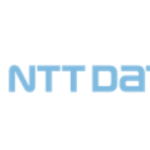- The latest report with Deloitte points to a significant maturity gap in agreement management across APAC. Why do you think businesses in the region are lagging in modernising these workflows?
The lag can be attributed to the fact that agreement management is still often viewed through a narrow operational lens, and seen more as a back-office function, rather than as a strategic enabler. That legacy mindset is one of the key barriers. As a consequence, our previous study on the Agreement Trap revealed that inefficient agreement processes are costing businesses in Asia Pacific approximately US$600 billion annually. Addressing this requires both a mindset shift and a modernisation of systems.
What has been encouraging to see, though, is that this perception is shifting. Our latest Optimising Agreement Management study has shown that over 75% of organisations now assign C-level ownership to agreement workflows, signalling that agreement management is moving into boardroom conversations. This reflects a growing realisation amongst business leaders that the legacy manual workflows will only hinder business revenues and even customer experiences.
While this realisation is a positive step forward, the implementation of modern agreement systems remains uneven across the region. For instance, while Singapore ranks highly in digital trust, with 89% of business leaders expressing confidence in the integrity and governance of their agreement systems, the country still lags behind markets like Japan and ANZ by more than 25 percentage points in contract creation maturity. This points to a pool of untapped potential, particularly across early-stage processes such as contract automation and AI integration. To close this maturity gap, businesses must rethink how they approach agreements, and to recognise it as a strategic tool for long-term growth.
- The data shows that only 16% of businesses have fully automated contract creation. What kind of operational risks or missed opportunities does this pose for fast-moving organisations in Asia?
In today’s digital-first, fast-moving market, every manual step in the agreement process results in slower response times, inconsistent terms, higher compliance risk, and ultimately, delayed revenue recognition. The fact that only 16% of businesses in Asia Pacific have fully automated contract creation underscores a significant structural gap that many organisations have yet to address.
For sales teams, this often means longer deal cycles and increased risk of deal abandonment. Our study has shown that organisations with mature agreement systems report up to 31% lower deal abandonment rates. Similarly, procurement teams that lack a smart agreement management system also suffer delays in vendor onboarding and responsiveness. In contrast, organisations with more advanced capabilities are saving 21% of time on complex supply agreements, enabling them to operate with greater agility, navigate supply chain volatility more effectively, and reduce operational drag.
- CX leaders who have modernised their agreement workflows report significantly better outcomes, can you share how this directly translates into improved customer experience and business impact?
Organisations that modernise their agreement workflows are gaining tangible, competitive edge not just operationally, but in how they engage, retain, and serve their customers. Agreements sit at the heart of nearly every customer interaction. Whether it’s onboarding a new client, finalising a sales contract, or resolving a service issue. When these processes are manual or fragmented, they create friction that customers feel longer wait times, inconsistent terms, or delays in issue resolution.
CX leaders who have invested in intelligent agreement management are 54% more likely to outperform on customer support and issue resolution goals, and 2x more likely to exceed their customer value objectives. That means they’re not just faster, but more consistent, responsive, and are able to build stronger trust across the customer lifecycle journey.
This improvement in CX also delivers real business impact. Faster, more seamless digital interactions can contribute to higher satisfaction and loyalty, particularly in a region like Asia Pacific, where digital expectations are rising rapidly.
Ultimately, modernising agreement workflows allows businesses to deliver a more reliable and seamless customer experience. Smarter agreement management is not just about digitising documents, it’s about creating interactions that strengthen customer relationships and drive more efficient business performance.
- While CX is a driver for agreement modernisation, what other business functions are seeing measurable impact from improved agreement workflows?
Beyond CX, several functions are seeing measurable benefits from improved agreement workflows, such as Human Resources and Sales teams. Agreement processes have now evolved into a strategic tool for business efficiency and impact.
Human Resources stands out as a prime example, where the function is evolving rapidly, improving employee engagement and experience as well as improving the productivity and efficiency of HR service delivery teams. The Optimising Agreement Management Report found that 70% of HR leaders report measurable improvements across the employee lifecycle after modernising their agreement process. Advanced agreement management systems are also reshaping the hiring and onboarding experience, making it noticeably smoother for everyone involved.
Sales teams are also realising significant value through advanced agreement management. These tools help optimise contracts, enhance forecasting, and increase overall productivity. More than 70% of sales leaders credit modern agreement workflows for better performance in these areas. By automating and streamlining contract creation, sales teams can free up time to focus on real-time collaboration and closing deals, rather than being slowed down by manual processes.
- With automation, AI and digital transformation now boardroom priorities, how do you see agreement management evolving in the next few years?
Modernising agreement workflows delivers significant business and customer experience impact by transforming what was once a manual, fragmented process into an intelligent, integrated system. AI advancements in this space are particularly promising, enabling more sophisticated contract creation and allowing custom workflows for different functional needs.
The use of AI could also improve language barriers, as providers face technical difficulties to programme in different languages. This is evident in regional variations in the perceived value of agreement management solutions. While Japan and ANZ show similar maturity, 55% of ANZ leaders say these capabilities have positioned them for success, 25% more than Japan and nearly double Singapore. However, solutions across APAC are rapidly advancing, and AI is expected to further unlock value throughout the lifecycle.
Ultimately, organisations know it will take time to realise the full benefits of automation and AI, as new systems must first pass strict security checks. However, expectations remain high. The ability to streamline agreements, surface actionable insights, and support global collaboration translates directly into faster deal cycles, improved compliance, and a more seamless experience for customers.
Legal Disclaimer: The Editor provides this news content "as is," without any warranty of any kind. We disclaim all responsibility and liability for the accuracy, content, images, videos, licenses, completeness, legality, or reliability of the information contained in this article. For any complaints or copyright concerns regarding this article, please contact the author mentioned above.















